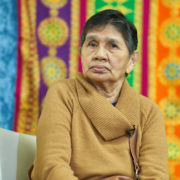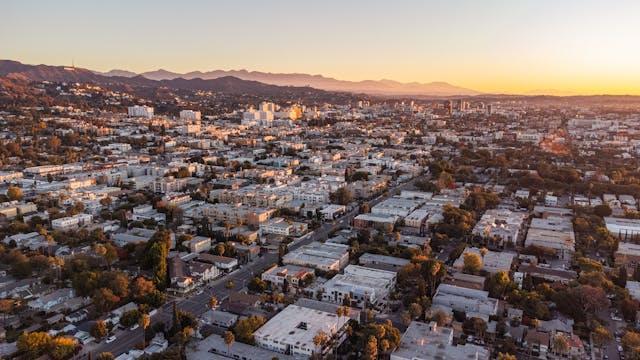Fedelina Lugasan, a former domestic worker who spent 65 years enslaved by a Filipino family, died on Thursday, June 11 in Long Beach, California. She was 83.
Fondly known as Nanay Fedelina, Lugasan was hospitalized earlier in the week for respiratory problems associated with COVID-19, the disease caused by the novel coronavirus, according to the Pilipino Workers Center (PWC).
PWC, the Historic Filipinotown-based workers’ rights organization, was vital in helping Lugasan adjust to her life of freedom after she was rescued from her employer in 2018. For the past two years, she had been living at a skilled nursing facility in Long Beach.
“As she transitioned into a new life of freedom, Nanay Fedelina has truly helped us understand what it means to be resilient. She did not wallow in what she had been denied, but instead took delight in the chance to experience new adventures like having her first-ever birthday party celebration! In the two years that we have known her, she has transformed from a victim of abuse to an empowered survivor leader — a symbol of hope to the oppressed and an inspiration to many,” the organization said in a statement.
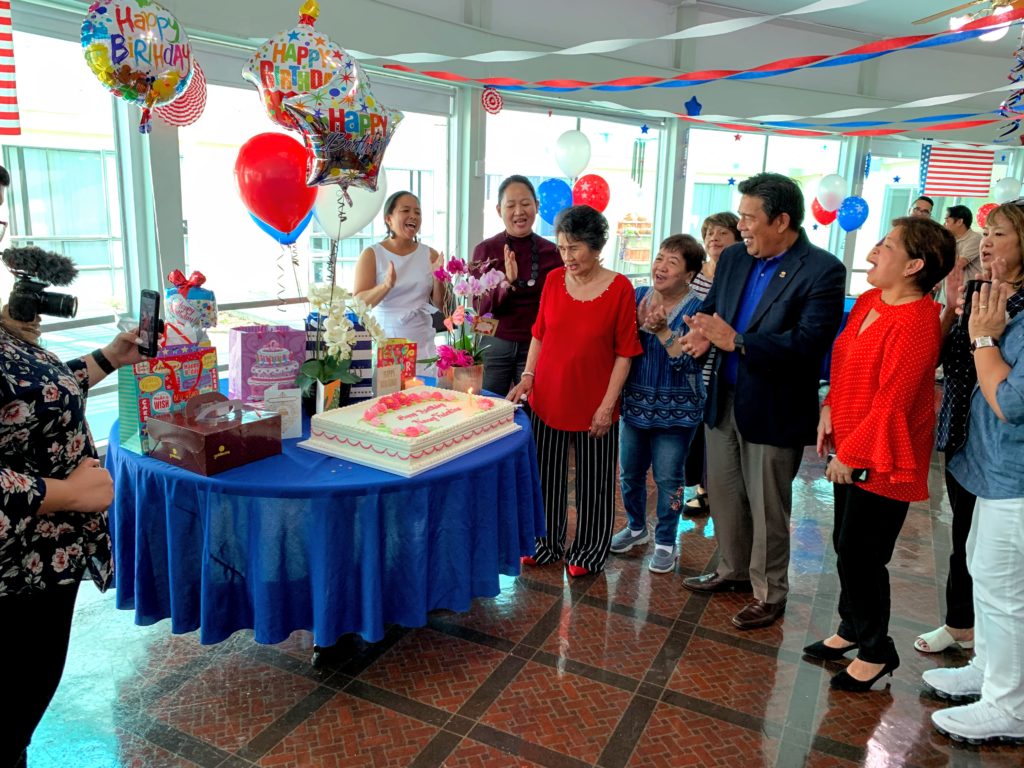
Originally from Leyte, Philippines, Lugasan had worked since she was 16 years old as a domestic helper for four generations of Benedicta Cox’s family, first in Manila, before they brought her to the United States in 1980 where they settled in Northridge, a city north of Los Angeles.
During her time with the Cox family, Lugasan did not receive any days off and was not paid for her work, which included household chores and taking care of the children and then grandchildren, as previously reported by the Asian Journal.
Lugasan’s passport, birth certificate, and other important documents were taken away from her, and she was subjected to physical and verbal abuse through the years. She also slept on the floor at the house, according to previous reports.
When Cox was hospitalized, Lugasan kept a close watch and stayed by her bedside. Lugasan barely slept or ate for several days, leading her vomiting and collapsing. A nurse at the hospital alerted law enforcement, which resulted in the FBI searching Cox’s residence and the eventual rescue of Lugasan in 2018.
The FBI alerted the Philippine Consulate General in LA, the Asian Pacific Islander Human Trafficking Task Force, the U.S. Committee for Refugees and Immigrants, and PWC about Lugasan’s case.
PWC had estimated that through her decades of work, Lugasan’s back wages come to about $1.6 million, using California’s minimum wage at the time she began employment with the Cox family in 1980.
Despite the working conditions over the decades, Lugasan forgave her employer. Cox was put on house arrest in 2019, sentenced to probation for five years and ordered to pay $101,119.98 in restitution. Cox died about six months into the arrest.
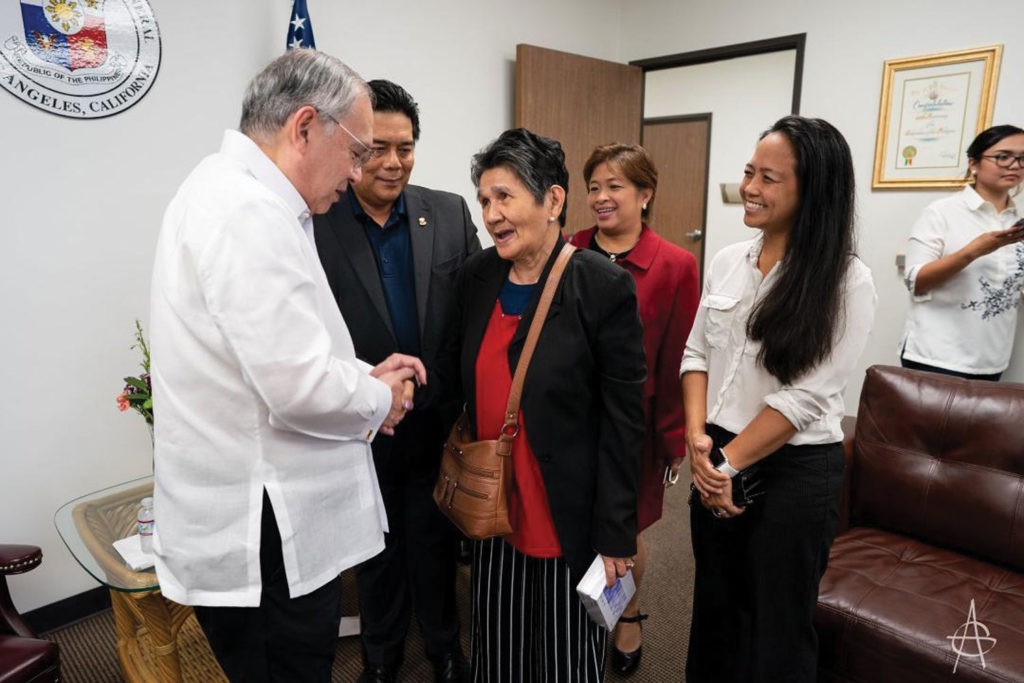
As Lugasan relished in her newfound freedom, she also became an advocate for anti-human trafficking efforts and lent her voice to the plight of modern-day slavery.
Last fall, Lugasan met Philippine Ambassador to the United States Jose Manuel Romualdez and expressed her desire to return to her hometown and see if her siblings or other relatives were still alive.
Because she was under a T visa for victims of human trafficking, Lugasan was unable to go back to the Philippines. However, the Philippine Consulate and Embassy helped expedite the process of securing a U.S. visa for her older sister Leonila Cinco, who is the only surviving sibling.
Cinco, together with her daughter Luz Albado and granddaughter Chrystine Abcede, arrived in Los Angeles at the beginning of March. The family spent 10 days sightseeing and making up for lost time with Lugasan.
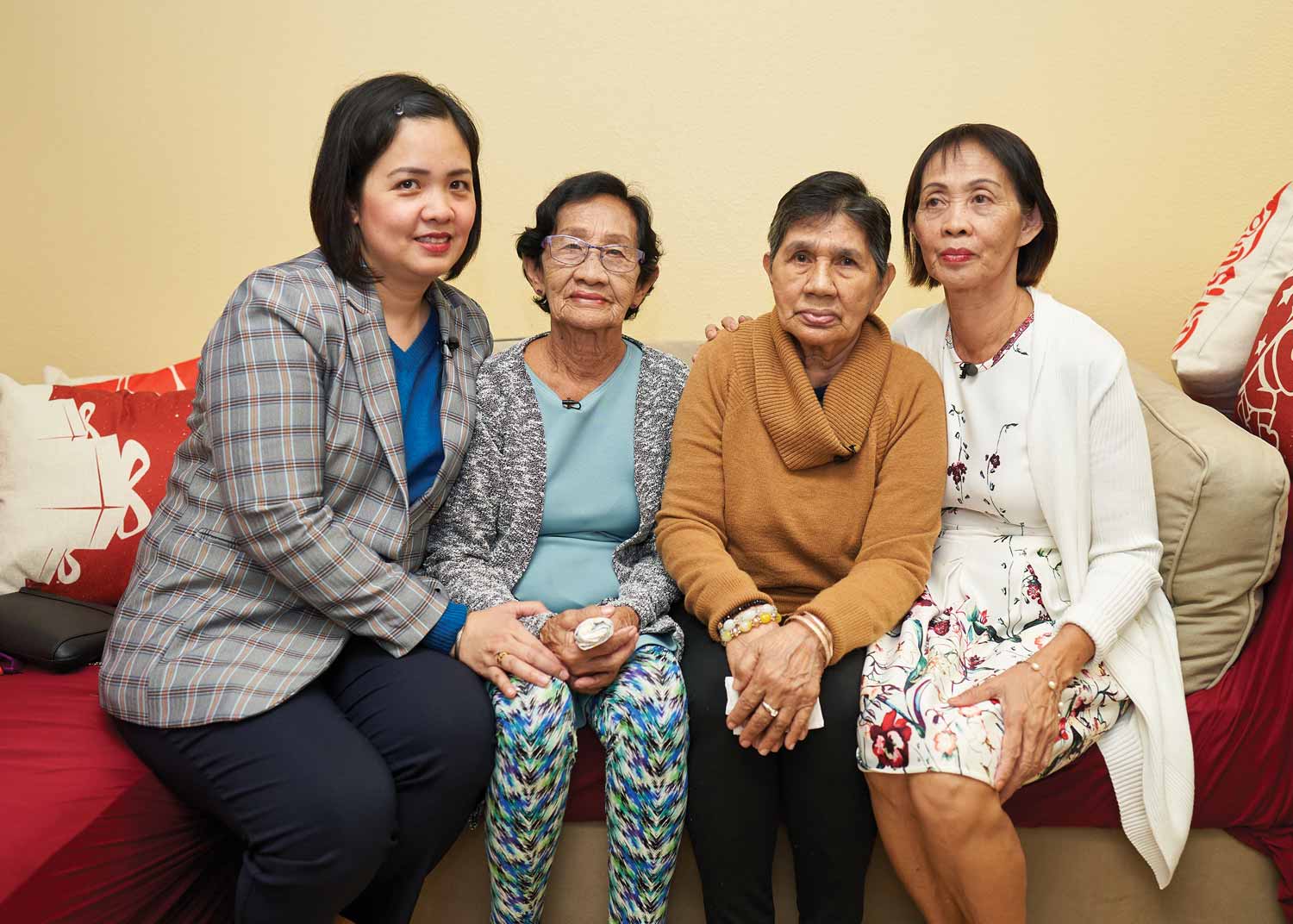
“She epitomized the hardworking Filipino who sought greener pastures abroad, but was victimized by cruel and heartless people. I console myself with the fact that in the end, even for a fleeting moment, she obtained justice, happiness and and freedom from her employers paving the way to reconnect with her loved ones even for two short weeks,” Philippine Consul General Adelio Cruz told the Asian Journal.
Lugasan was the center of a documentary by The Filipino Channel’s newscast Balitang America, entitled “Kept: Six Decades of Servitude,” which won a Northern California Emmy in the human interest category on Sunday, June 7.
Steve Angeles, the writer and producer of the documentary, told the Asian Journal that in the process of capturing Lugasan’s story, he noticed how “she went from a frail, timid, woman, who showed the telltale signs of human trafficking, into a healthy, strong advocate speaking out against human trafficking as she shared her stories.”
“In the end, Kept’s main mission is to shed light and put a face on human trafficking. We are all blessed that she was alive, and open enough to share her story for the greater good. It’s a heartbreaking, but often too common topic that we do news about. While Nanay is physically gone, her stories and advocacies will live on,” Angeles said.
Memorial details for Lugasan have yet to be announced.
**
Editor’s note: The Asian Journal is working to document those of Filipino descent who have lost their lives because of the coronavirus in the United States. If you know of someone or would like to offer a remembrance of someone who has died of COVID-19, please tell us about them by emailing digital@asianjournalinc.com with the subject line “Remembering Lives Lost.”


